A platform for collaboration and version control is called GitHub. It enables remote cooperation on projects between you and other people—every user of GitHub logs in using a personal account.
An enterprise account allows centralized management of several enterprises, whereas an organization account improves collaboration across various personal accounts.
However, GitHub is not the only platform that enables code version control and collaboration. Here are some of the best GitHub alternatives that will pop off in 2023.
GitLab
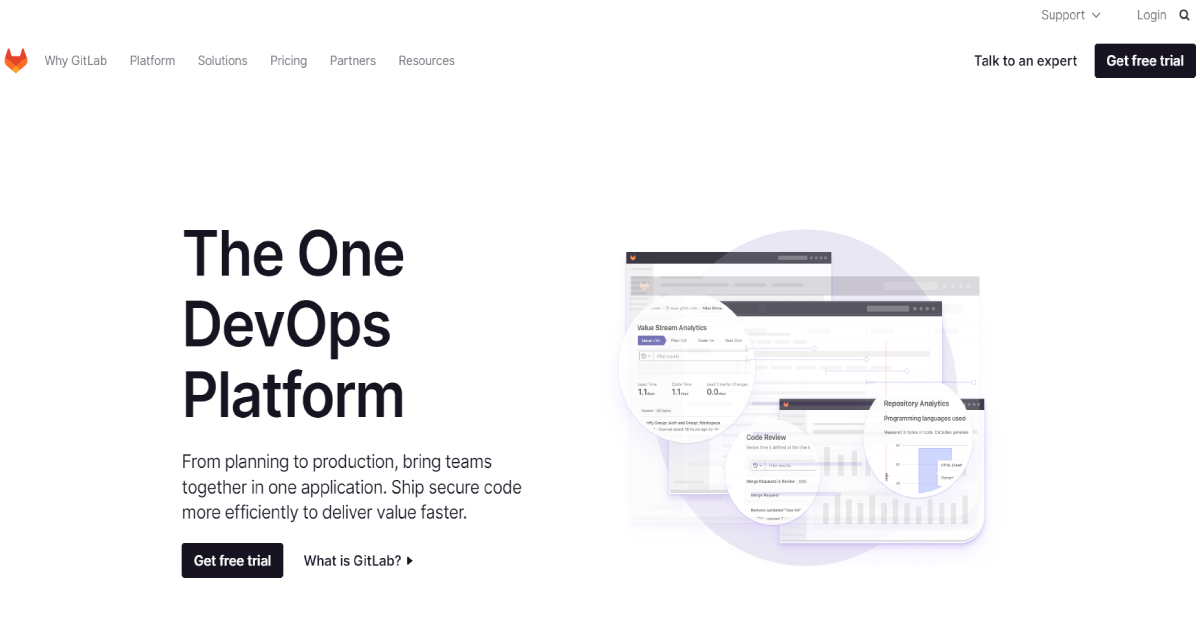
The most incredible thing about GitLab is that it offers comprehensive processes, including CI/CD, monitoring, and security, in addition to project planning and source code management.
Because CI/CD integration uses resources and time efficiently, developers can spot problems early and fix them. Over 100,000 contented enterprises utilize GitLab, which has an active community of 2200+ contributors.
Key features include authentication and authorization with flexible permissions, protected tags, access to the server, multiple integrations, LDAP group sync filters, innovative card support, value stream management, IP whistling, comment changes, backlog management, risk management, and much more.
Bitbucket
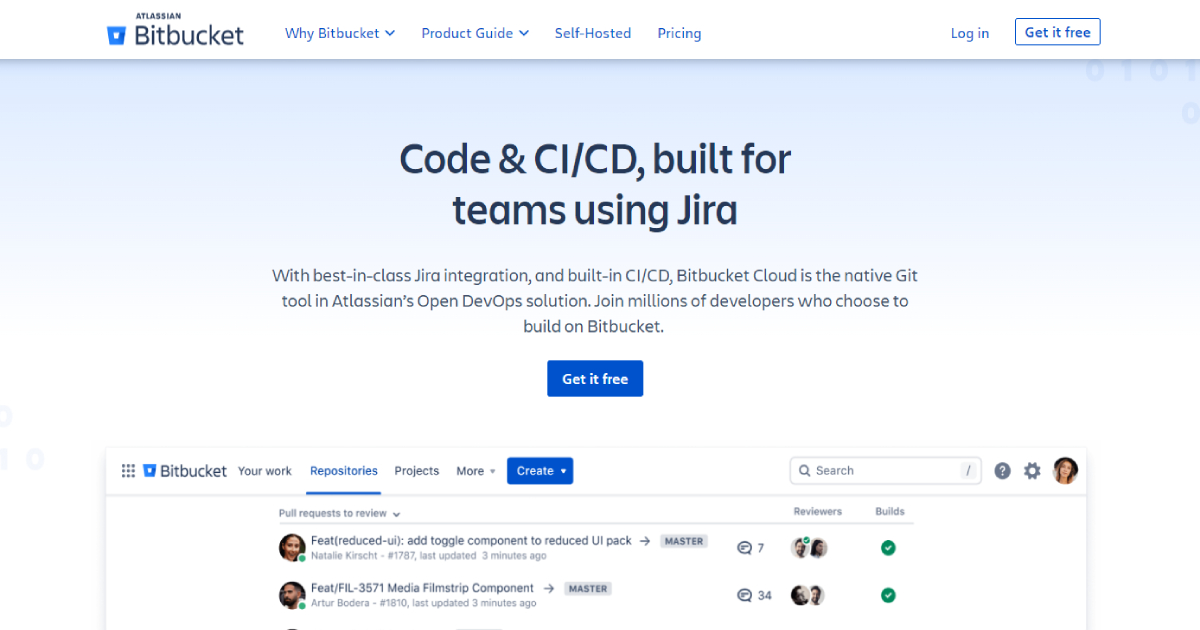
With Bitbucket, professional teams can plan projects, work together, test code, and complete tasks all in one location. Additionally, it provides the best-in-class interaction with Jira and Trello and limitless free private repositories for small teams. Individuals and groups with five users or fewer can use it for free.
Additionally, you may add files by using the Git command line.
Key features include pull requests for higher quality code and sharing it among team members, branch permission for access control, and large file storage in Git LFS. It also includes Trello boards to organize projects, diff views, third-party integrations, build integration, desktop clients, flexible deployment, execution options, etc.
GitBucket
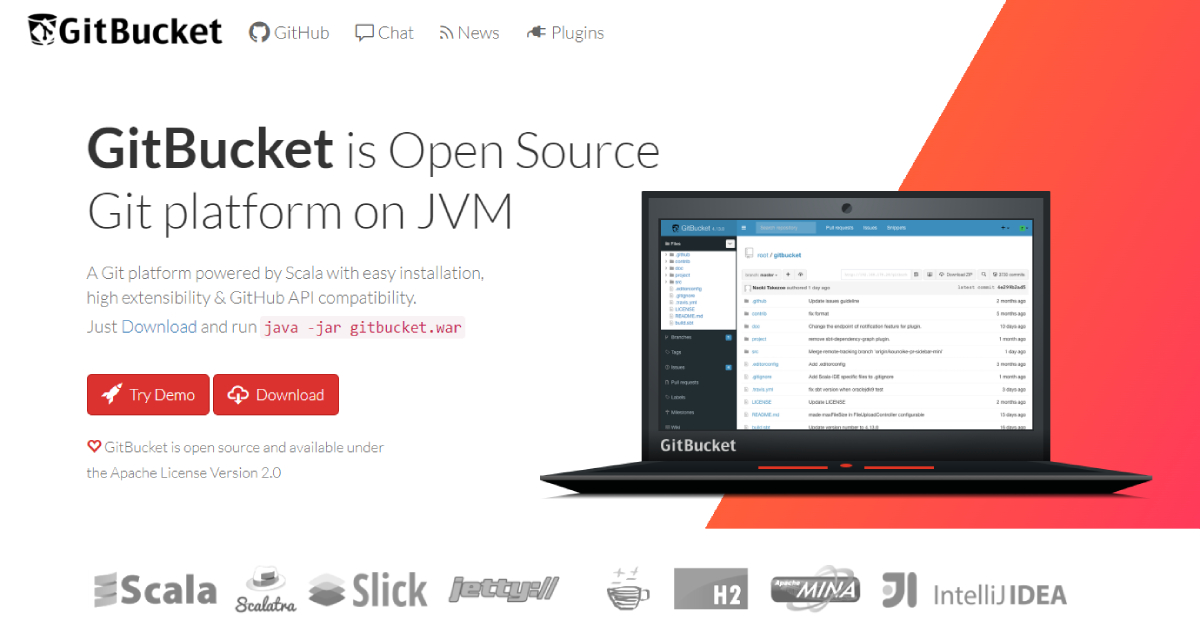
GitBucket is a Scala-based GitHub clone that is simple to install. It is a JVM-based open-source Git platform. It is designed as a GitHub clone to provide developers with great extensibility, simple installation, and GitHub API compatibility in an open-source setting.
It also offers GitHub-type functionality, including hosting Git repositories through HTTP and SSH, User Interface, problems, wikis, and pull requests.
Key features include simple setup, SSH keys, great UI, public and private Git repositories with repository viewer, repository search, mail notifications, issues, user management, wikis, fork-pull requests, activity timeline, LDAP integration, etc.
Launchpad
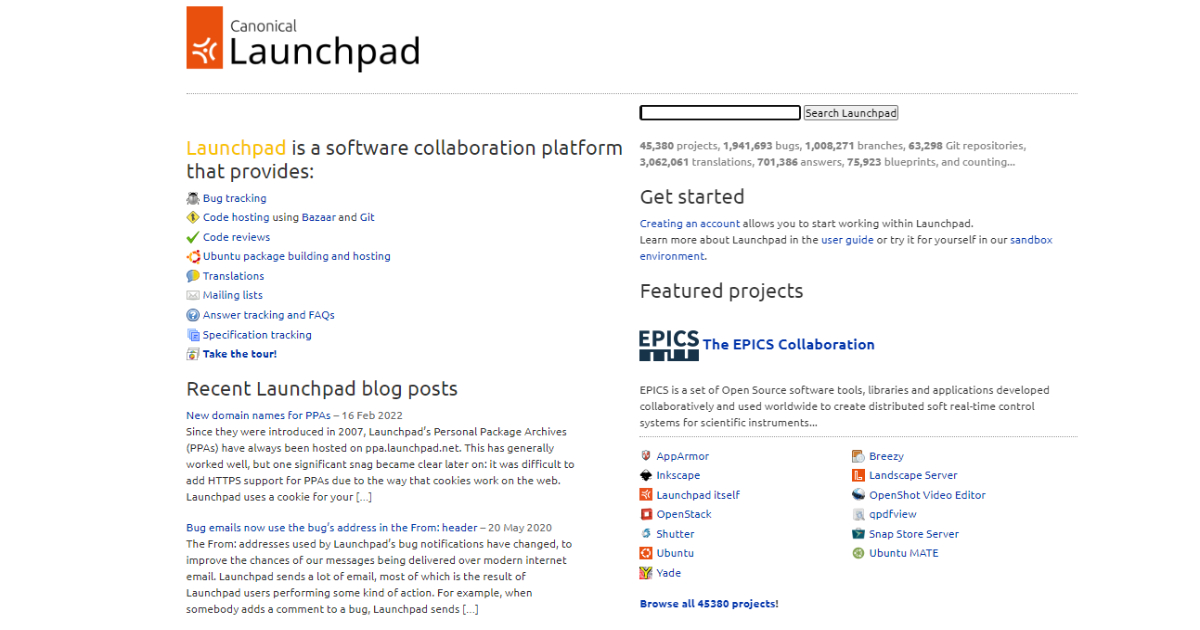
With Launchpad, developers may freely create and maintain their applications on this open-source platform. Launchpad is a good knowledge base and community support site with specifications and features, a good bug and issue tracking platform, a hosting source code platform, and supports different human languages.
Key features include bug tracking, code hosting with Bazaar, code reviews, language translations, Ubuntu package, dashboard, collaboration, bug report sharing, email notifications, drive-by contributions, linking between bugs and branches, etc.
SourceForge
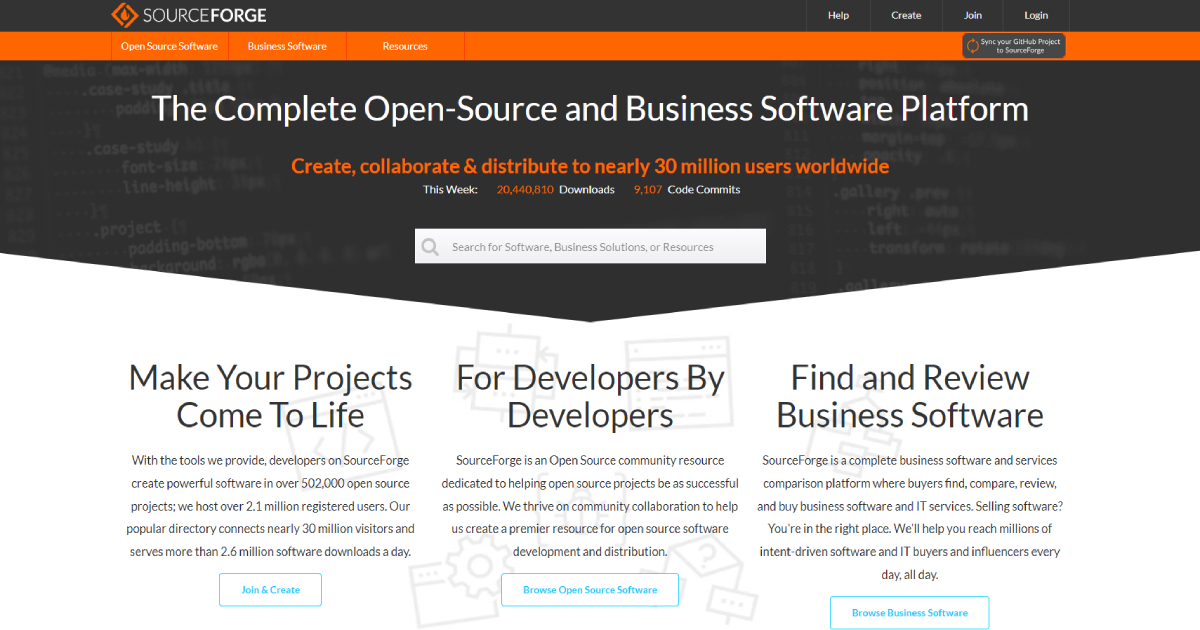
This one is one of the most popular places for IT developers to create, download, analyze, and distribute open-source projects. Built for developers by developers, SourceForge is an entirely free and open-source software platform. Their primary goal is to support open-source projects’ maximum success.
Thanks to SourceForge, you may create, collaborate with others, and share your work with more than 30 million individuals worldwide.
With SourceForge, you can download analytics for your projects, categorize projects, take screenshots, generate videos, share your stuff on social media, and host code with Git, Mercurial, or any other subversion. It works as a worldwide mirror network and runs on Apache Allura, which lets you host your forge.
Conclusion
Even though GitHub is maybe the most popular option available, having a good competition on the market can only bring good things. These are some of the most perspective alternatives, and we suggest you look at them.
